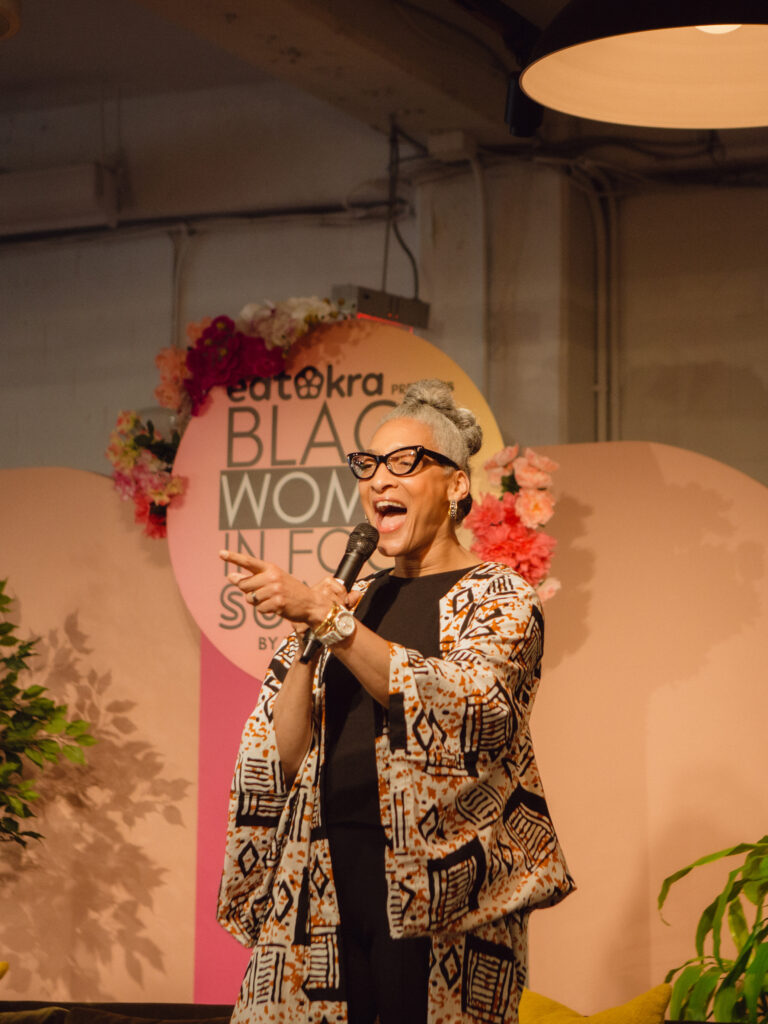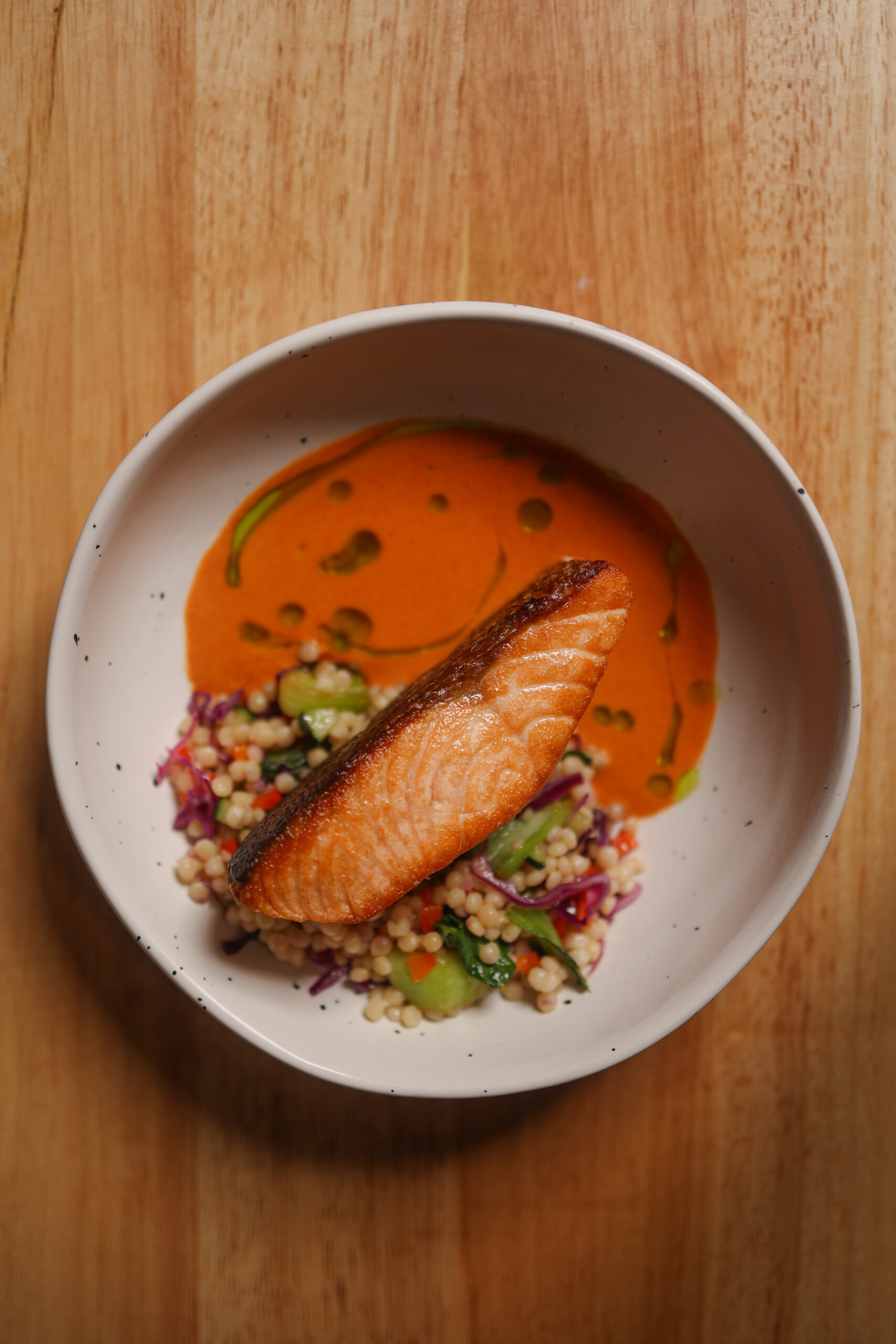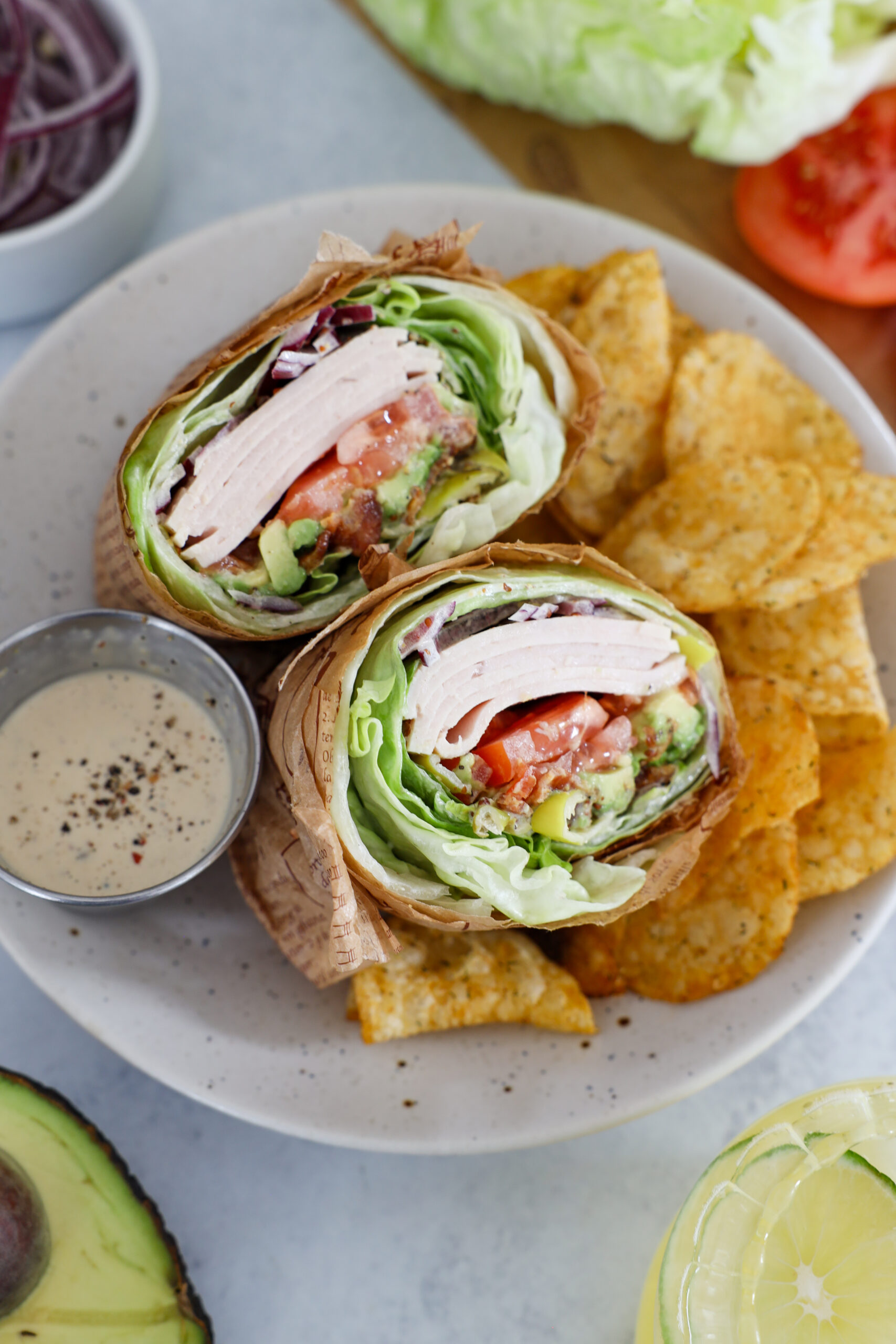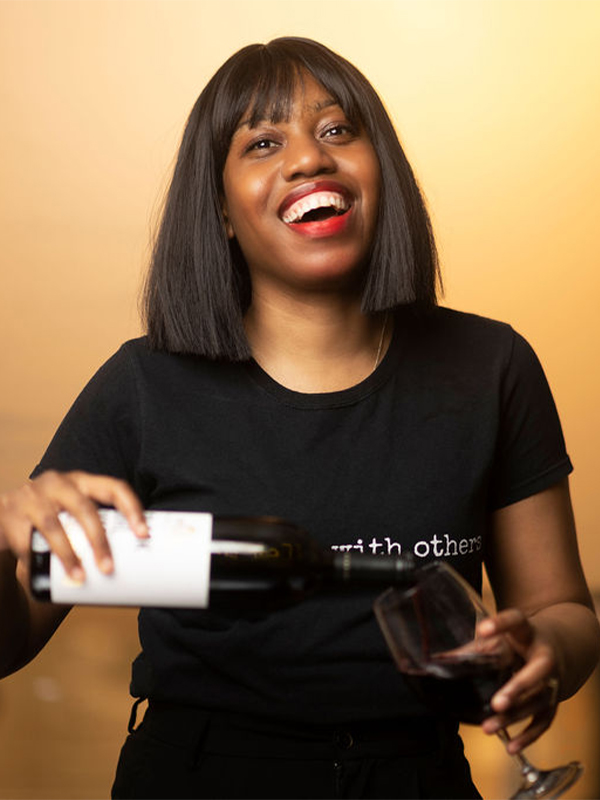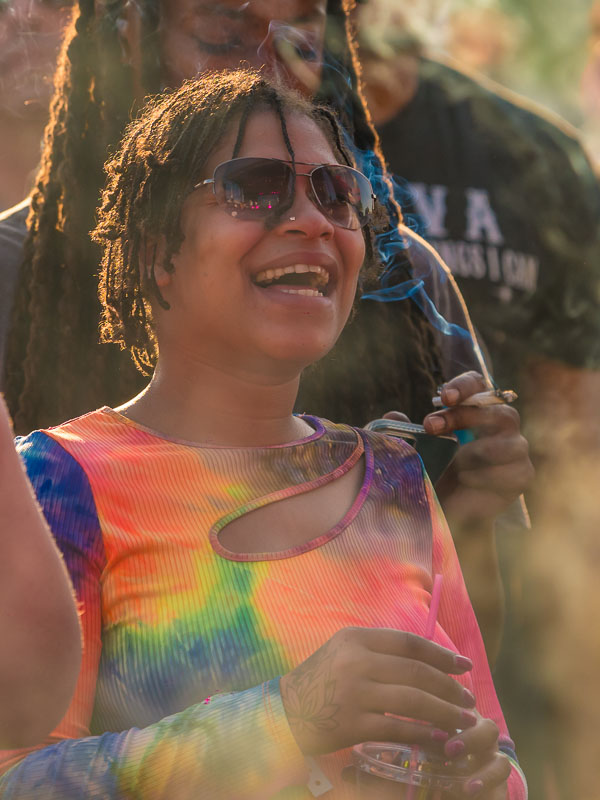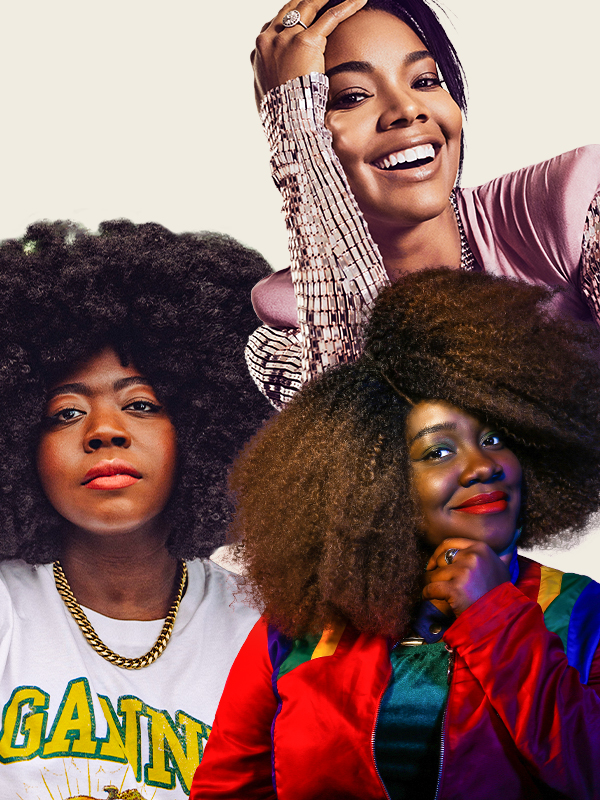Black women have been at the center of food and beverage for ages. They’ve been at the forefront of producing a diversity of flavors, unique ideas and strong commitments to empowering the industry. This vibrant community comprises chefs, restaurateurs, journalists, writers, content creators and business owners.
Still, Black women continue to be overlooked in a historically white male industry. Case in point: Among the top 10 companies across the food and beverage industry in 2022, which collectively rake in nearly half a trillion dollars annually, only two include a Black woman in a leadership position. This, along with a variety of others, is an issue that Dine Diaspora aimed to highlight at their inaugural Black Women in Food Summit, held in Washington, D.C., and sponsored by EatOkra. But it was also an event that aimed to spotlight the joy that comes with a group of trailblazers convening in one place and giving each other well-deserved flowers.
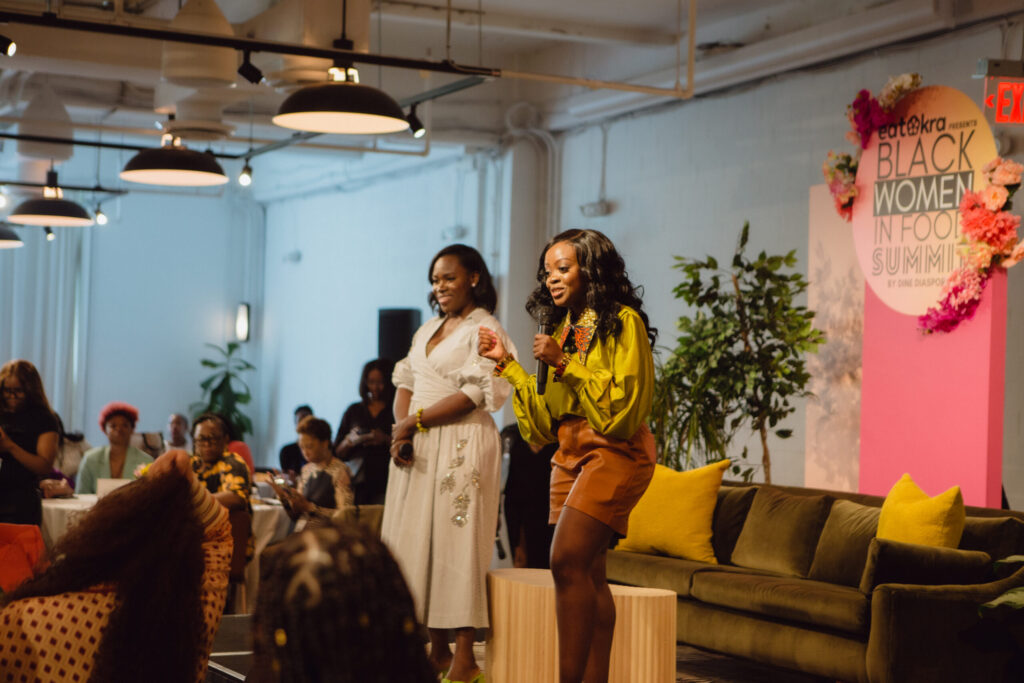
Here are four key conversations, among so many others, that were brought to the table.
Power in the Pivot
The Black Women in Food Summit began with a powerful address by chef and TV personality Carla Hall. With so many women looking to find their place in the food and beverage industry, her speech hit home as she discussed struggles within her own career.

Hall’s 20-year journey—from opening a lunch and delivery service to landing a spot on The Chew and Top Chef—is inspiring. It was not without a few hiccups, reinventions and uncertainties, but, as she emphasized, everything she encountered was for her benefit and vital to her success.
“Everything that you do is for you, every challenge that you have is for you”
– Carla Hall
Founder and CEO of Uncle Nearest Premium Whiskey, Fawn Weaver, echoed Hall’s sentiments. Before finding success in the food and beverage industry, Weaver detailed her experience with her first business, a public relations company. Years later, that experience came full circle as she used her PR knowledge to gain coverage for her whiskey brand.

“Failure doesn’t exist. It is always a stepping stone to whatever is supposed to come next. Failure is not failure unless you give up before you succeed.”
– Fawn Weaver
Funding & Food
Access to funding for Black women-owned businesses continues to be a major hurdle and, naturally, was a big topic of conversation at the summit. Black women received less than 1% of venture capital; the number for Black women in food is even lower.
The Securing the Bag session created a space dedicated to helping Black women in the food and beverage industry find and maximize funding opportunities, including non-dilutive fundraising methods, to sustain their businesses while remaining authentic to their missions.
When it comes to receiving funding, it’s not just about hitting points on a checklist. It’s about building genuine connections with people who believe in the brand and the people behind the brand.
“That grant, that check that we’re writing, we’re writing it to a person not a company—funders fund people.” – Marie Clark, New Voices Foundation
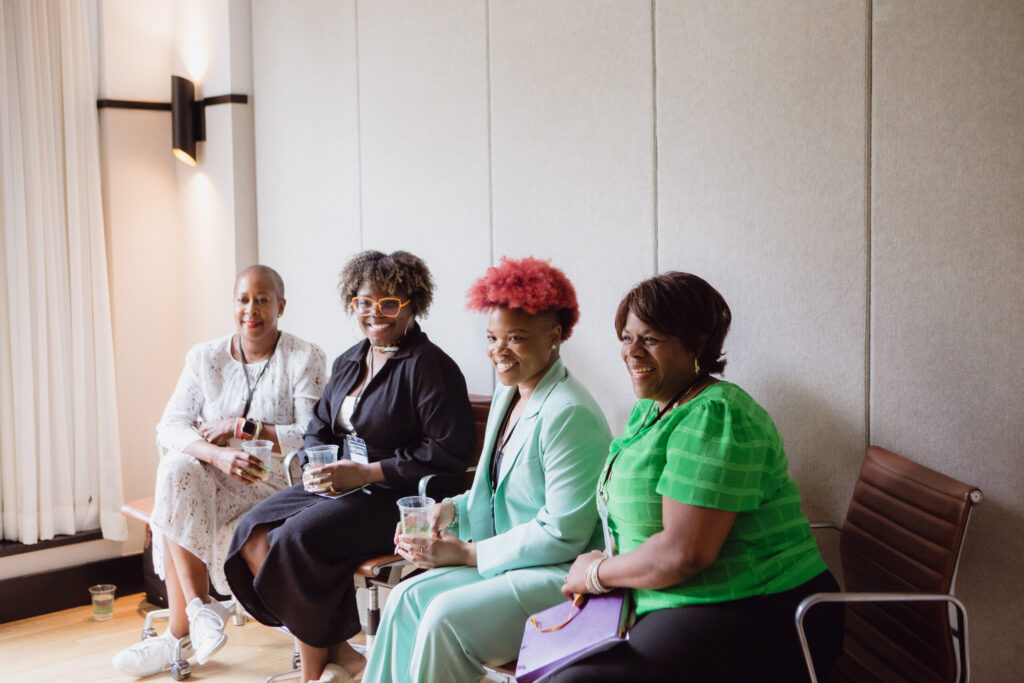
Representation in Agriculture
The Who’s on The Farm? session brought together a panel of farm owners to discuss how Black women are commonly overlooked in agriculture and how to bridge the gaps between consumers and the sources of their fresh food.
In Wisconsin, where there are an estimated five Black farmers, Adrian Lipscomb heads the 40 Acre Project and owns one of the only Black-owned restaurants in the region. She gave a brief but eye-opening history lesson on how Black farmers in America are struggling to obtain and keep their land.
“Twelve million acres of land owned by Black farmers in America have been lost.”
– Adrian Lipscomb
Lipscomb believes part of the issue is the lack of education about farming practices, which leads to the demise of smaller, Black-owned farms. She says consumers should be just as familiar with their local farmers as they are with their doctor.
Gail Taylor, activist and owner of Three Part Harmony Farm, detailed the trials of keeping her community garden.
According to Taylor, urban community farms are usually supported by philanthropic efforts, but those funds aren’t usually available to Black women owners. That’s why she’s hyper-focused on creating a space for local residents in the D.C. area who need farm fresh food.
For those born outside of America, representation takes on a different meaning. Tope Fajingbesi, owner of Dodo Farms, believes food leaders should work in harmony to generate profitable farming businesses and foodways in Africa. Replacing the traditional, global U.S. diplomats in agriculture with more people who look like us is Fajingbesi’s five-year mission. This is what representation looks like to her.
“It’s time for us to go back for the ones who were left behind and then bring back what their great-grandfathers brought here.” – Tope Fajingbesi

Community Building for Black Women
There’s no success in solitude.
Far too often, Black women walk through the business environment alone. But it doesn’t have to be that way.
“Community is like the most important thing for growing my business.”
– Ehime Eigbe, Sweetkiwi
The Black Women in Food Summit is changing that narrative by making intentional efforts to gather and highlight the leaders in food who so often feel unseen and unsupported. As more industry professionals come together to connect and share their experiences and knowledge, we can expect the birth of tighter-knit communities that facilitate thriving Black women-owned businesses.
